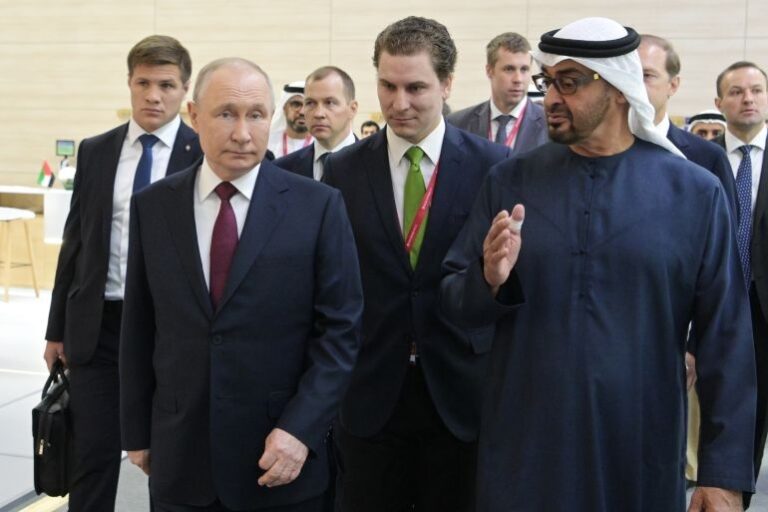The United Arab Emirates (UAE) has been in the crosshairs of the United States and the European Union for its continued links to Russia, frustrating the West’s efforts to squeeze Moscow economically in response to its war on Ukraine. But now, some possible adjustments in Abu Dhabi’s foreign policy could slightly change the picture amid rising concerns that Israel’s war on Gaza could spread across the region.
In early September, representatives from the United Kingdom, EU and US visit the UAE to voice their concerns about the Gulf country’s links to Russia.
Specifically, these Western governments have tried to prevent the Russians from accessing certain dual-use products such as computer chips and electronic components that can be used to strengthen the Russian war machine.
Earlier this year, Washington warned the UAE, Oman, and Turkey against evading sanctions and export controls imposed on Moscow last year. Then in April, the US imposed sanctions on two UAE-based entities: Aeromotus Unmanned Aerial Vehicles Trading LLC and Hulm Al Sahra Electric Devices Trading.
According to the Treasury Department, Aeromotus had sent several drones and robotics technology to Russian importers following the outbreak of the ongoing war in Ukraine.
Washington sanctioned Hulm Al Sahra for allegedly sending roughly $190,000 worth of semiconductors, which were from the US and subject to US export controls, as well as machinery, electronics and optics to Russian companies in the second half of 2022.
Shortly after the Western officials’ September visit to the UAE, Bloomberg News reported that Emirati authorities were considering introducing export licenses on certain technologies, including semiconductors.
Abu Dhabi has yet to impose these measures. Any such move, should it happen, will be not only because of mounting pressures from the West, but also because of growing threats of the Israel-Hamas war spilling into other parts of the Middle East. In that scenario, the UAE would want to shore up ties with its ultimate security guarantor, the US, according to experts.
“If the UAE does introduce export licenses, it would be an indicator that it sees the costs of not complying with Western demands as exceeding the benefits of at least some of its trade with Russia,” said Mark Katz, a professor at George Mason University’s Schar School of Policy and Government, in an interview with Al Jazeera.
“It would also be an indicator that the UAE does not want to damage its relations with the US, especially when the possibility of a wider Middle Eastern conflict including Iran is brewing and the UAE would want to have American protection against Tehran,” he said.
